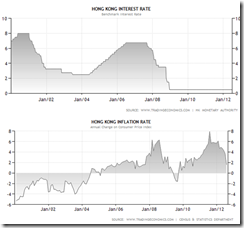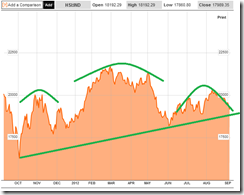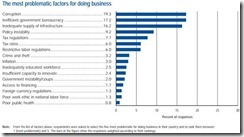Author Robert Neuwirth of Stealth of Nations: The Global Rise of the Informal Economy makes a great talk at the TED anent the vastly underrated informal or shadow economy
The TED introduces Mr. Neuwirth for his "out-of-the-box" thinking, or as challenging
“the conventional thinking by examining the world's informal economy close up. To do so, he spent four years living and working with street vendors and gray marketers, to capture its scope, its vigor--and its lessons. He calls it “System D” and argues that it is not a hidden economy, but a very visible, growing, effective one, fostering entrepreneurship and representing 1.8 billion jobs worldwide.
Mises Institute’s Jeff Riggenbach quotes Mr. Neuwirth’s definition of the informal economy based on his book…
This "informal economy," he writes, "produces, cumulatively, a huge amount of wealth.… It is how much of the world survives, and how many people thrive." And he has a name for it: System D.
"System D," he quickly explains, “is a slang phrase pirated from French-speaking Africa and the Caribbean. The French have a word that they often use to describe particularly effective and motivated people. They call them débrouillards. To say a man (or woman) is a débrouillard(e) is to tell people how resourceful and ingenious he or she is. The former French colonies have sculpted this word to their own social and economic reality. They say that inventive, self-starting, entrepreneurial merchants who are doing business on their own, without registering or being regulated by the bureaucracy and, for the most part, without paying taxes, are part of 'l'economie de la débrouillardise.' Or, sweetened for street use, 'Systeme D.' Thisessentially translates as the ingenuity economy, the economy of improvisation and self-reliance, the do-it-yourself or DIY economy.
The video from TED Ideas Worth Spreading (hat tip Professor Mark Perry)
Some highlights:
-“Something like this is totally open, it’s right there for you to find. All of this is happening openly and above board there is nothing underground about it. It is our prejudgment that it is underground”
-Governments dislike this
-“We are all focused on the luxury economy” ($1.5 trillion per year)
-“It excludes two-third of the workers of the world, 1.8 billion people work in an economy that is unregulated and informal”
-It is where employment is
-It engenders a more egalitarian world
In reality, the so called “prejudgment” of the informal economy has been part of orchestrated government campaign propaganda to derogate them, for the simple reason that the existence of the informal economy diminishes the importance of the role of governments.
More significantly, the informal economy represents the stark account of government failure
As John Sullivan of the Huffington Post writes,
The informal sector -- those businesses and entrepreneurs who work outside of the formal market economy -- is huge and largely undocumented in most developing economies. Almost everywhere, the root cause is the same: cumbersome, unresponsive, unfair, and overwhelmingly status quo-driven bureaucracy. People simply cannot get through the wall of red tape or the maze of regulations to gain access to the formal economy.
Moreover, author Robert Neuwirth points to the survivorship bias by public of focusing on the “luxury” economy (euphemism for consumption economy) which has been much smaller than the informal economy.
Again this represents the indoctrination by the mouthpieces of government conduits particularly through mainstream media.
Take the Philippines, hardly any serious study dwells with the informal economy. Every news exaggerates on the contributions of OFWs to the economy whose remittances accounts about 10% more or less of the economy.
When it comes to the informal economy, even when we deal with them or see them daily as a fact of life, they become a vacuum in mainstream’s eyes
The following excerpt is an example of one distorted perspective relative to OFW’s contribution to property development, the Global Property guide writes,
Overseas Filipinos’ remittances are powering the low-end to mid-range residential property market. They are snapping up housing projects and mid-scale subdivisions in regions near Metro Manila such as Cavite, Batangas and Laguna Provinces, while the expansion of the upper residential market, including the luxury market, is due to increased housing demand from BPO employees and expatriates, according to the World Bank.
Overseas Filipino Workers (OFW).account for around 17% to 18% of residential sales of Ayala Land, one of the country’s major developers. In the next five years Ayala Land President Antonio Aquino expects to double this, by branching out to the affordable and low-end market segment.
If OFWs account for say 20% of the housing or property demand, so what happened to the 80%? Which is mathematically bigger 20% or 80%? Since when has 20% become a dominant factor?
Let me add that OFWs also contributes to the informal economy, that is if the recipient families engage in unregulated or untaxed commerce.
This is why I have been repeatedly pointing out that for a country, whom according to mainstream has supposedly been living in Third World and has been allegedly 'poor', the Philippines hosts three of the largest malls in the world (Forbes 2008). Yet these malls, have not been like those ghost malls in China, as they have near full occupancy (which means profitable retail enterprises)
Further, the thrust of mall development in the Philippines has been spreading to the rural area which I recently argued, as suggesting of the deepening role of decentralization and of signs of the plateauing or the reversal of urbanization.
All these can HARDLY be supported by consumption spending by OFWs alone (or even if you add exports, which has been the favorite source of Keynesian influenced media).
The fact is that the informal economy has far been a larger contributor to the Philippines’ economic growth than has been projected.
Remember since the informal economy has been largely undocumented thus statistical estimates will bear significant errors.
Despite the survivalship bias practiced by the mainstream, Mr. Neuwirth’s putting into perspective of the real state and of the potentials of the informal economy appears to have been indirectly acknowledged by the World Bank,
the shadow economy has reached a remarkably large size with a weighted (unweighted) average value of 17.2 (33.1)% of official GDP. However, equally important is the clear negative trend of the size of the shadow economy over time. The unweighted average size of the 162 countries decreased from 34.0% of official GDP in 1999 to 31.0% in 2007; for the 21 transition countries from 36.9% in 1999 to 32.6% in 2007.
While the World Bank says the trend has been slowing, this has, I think, has mostly been a result of recent trends of globalization and economic freedom which tend to increase participation of the some erstwhile segments of the informal sector to the formal sector.
But such dynamics should not be construed as past performance determining future outcome. If the informal or shadow economy has signified as the public’s response to the politicization of the markets, then increased politicization means the tendency to shift economic activities towards the informal sector.
A quote from this Forbes article nails it…
“These are not really people oppressed by poverty,” says writer Stewart Brand. “They are getting out of poverty as fast as they can.” This isn’t to say that cellphones are about to save the world. But they have become the tool of choice for people who are determined to save themselves.
The informal economy, thereby represents free trade in motion and has been about people’s natural recourse to survival.
As the distinguished Austrian economist Percy Greaves Jr. once said,
For men, life is a series of choices by which we seek to exchange something we have for something we prefer. We know what we prefer. No other man or bureaucrat is capable of telling us what we prefer. Our preferences are our values. They provide us with a compass by which we steer all our purposeful actions. Because few people fully understand this, we have some serious economic problems…
Anything that raises cost or hinders the free and voluntary transactions of the market place must keep human satisfactions from reaching their highest potential. Today the greatest obstructions to the attainment of higher human satisfactions are the well-meaning but futile political interferences with the mutually beneficial transactions of a free market economy.
So any obstacles placed against activities which facilitates people’s survival will intuitively lead to the informal economy.
This is common sense.
Unfortunately common sense has been unavailable to politically brainwashed mindsets.













